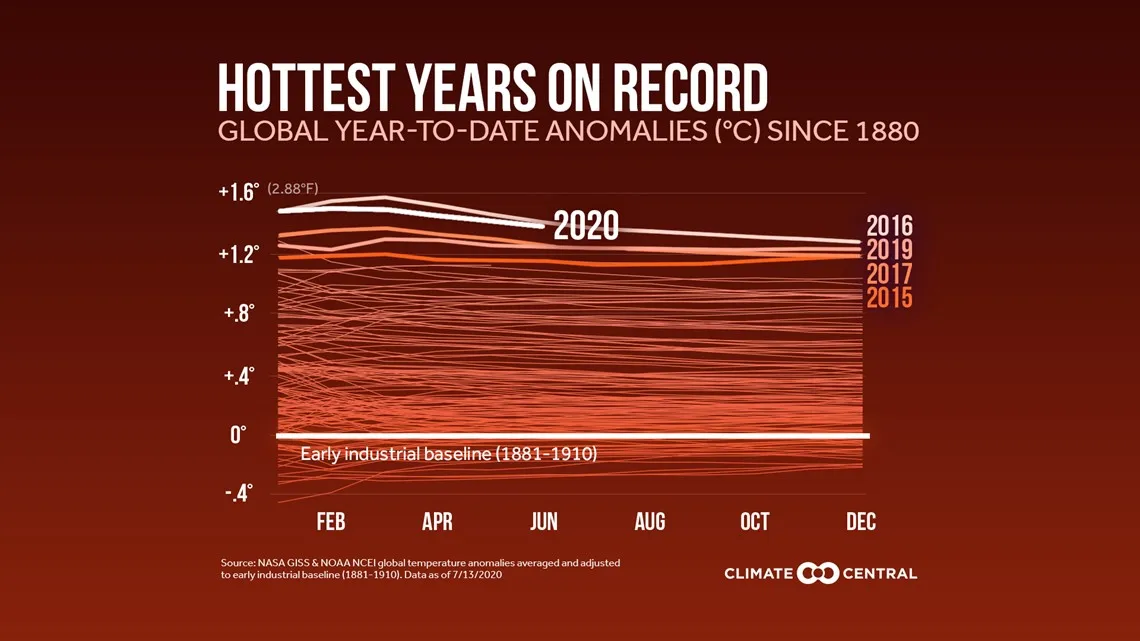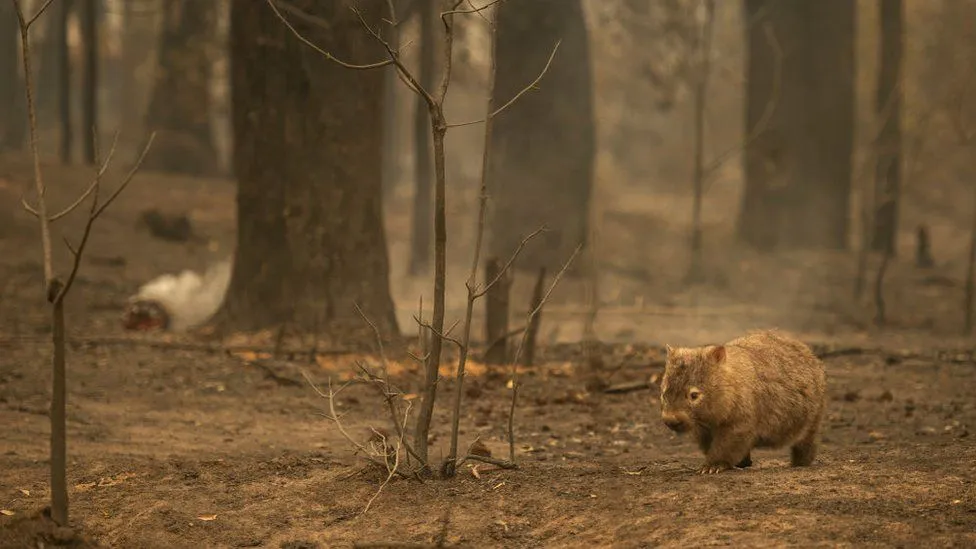According to the World Meteorological Organization, 2020 is the third warmest year in human history, but this year has also seen rains, storms, forest fires and other disasters. Forest fires continued in Australia and California, and the Arctic's permanent ice is at an all-time low, while new records of floods, storms and heat waves are among the 2020 natural disasters.

All of this was reported by the World Meteorological Organization (WMO) in a report at the end of the year. Hundreds of meteorologists and other organizations around the world have presented their observations and research in this regard. After 2016 and 2019, the year 2020 has been declared the hottest year in human history. That is, the global average temperature has risen to 1.2⁰C since the pre-industrial revolution.
"Despite La Nina, global temperatures have not dropped this year, and we have noticed unusual heatwaves," said Petteri Taalas, head of the reporting team. Glaciers have even been seen melting in the Norwegian region of Svalbard.
Interestingly, the entire decade from 2011 to 2020 was also the hottest in history, which is also the summary of this report. Although vehicles and factories were closed due to the lockdown, a new record has been set for the amount of greenhouse gases in the atmosphere. It is feared that by 2024, the average pre-industrial temperature will reach 1.5 ⁰C.

According to conservative estimates, hundreds of people have died this year due to extreme weather and climate change, and tens of millions have been forced to flee their homes temporarily or permanently. Australia's fire has burned 33 people and a billion animals to ashes, while hundreds of people living far away could not escape the smoke and suffocation.
A California fire in October killed 43 people, and South Africa's largest lake, the Pentanel, has been on fire for months. Then came the great cyclones and storms in the world's oceans, and in the United States a hurricane named Lara killed 27 people. In November, two hurricanes appeared ten days apart, killing dozens.
August has been the wettest month in Pakistan. Karachi received 231 mm of rain on August 28, which is also a record one day. At the same time, locusts in Sindh and Balochistan caused extraordinary damage to crops.
However, after this report, experts have said that the coming months and years could be more dangerous.
Thank you for reading! Stay Safe!👋😌
Resources:
1- https://www.thejakartapost.com/life/2020/12/03/2020-one-of-three-hottest-years-ever-recorded-un.html
2-https://public.wmo.int/en/our-mandate/climate/wmo-statement-state-of-global-climate